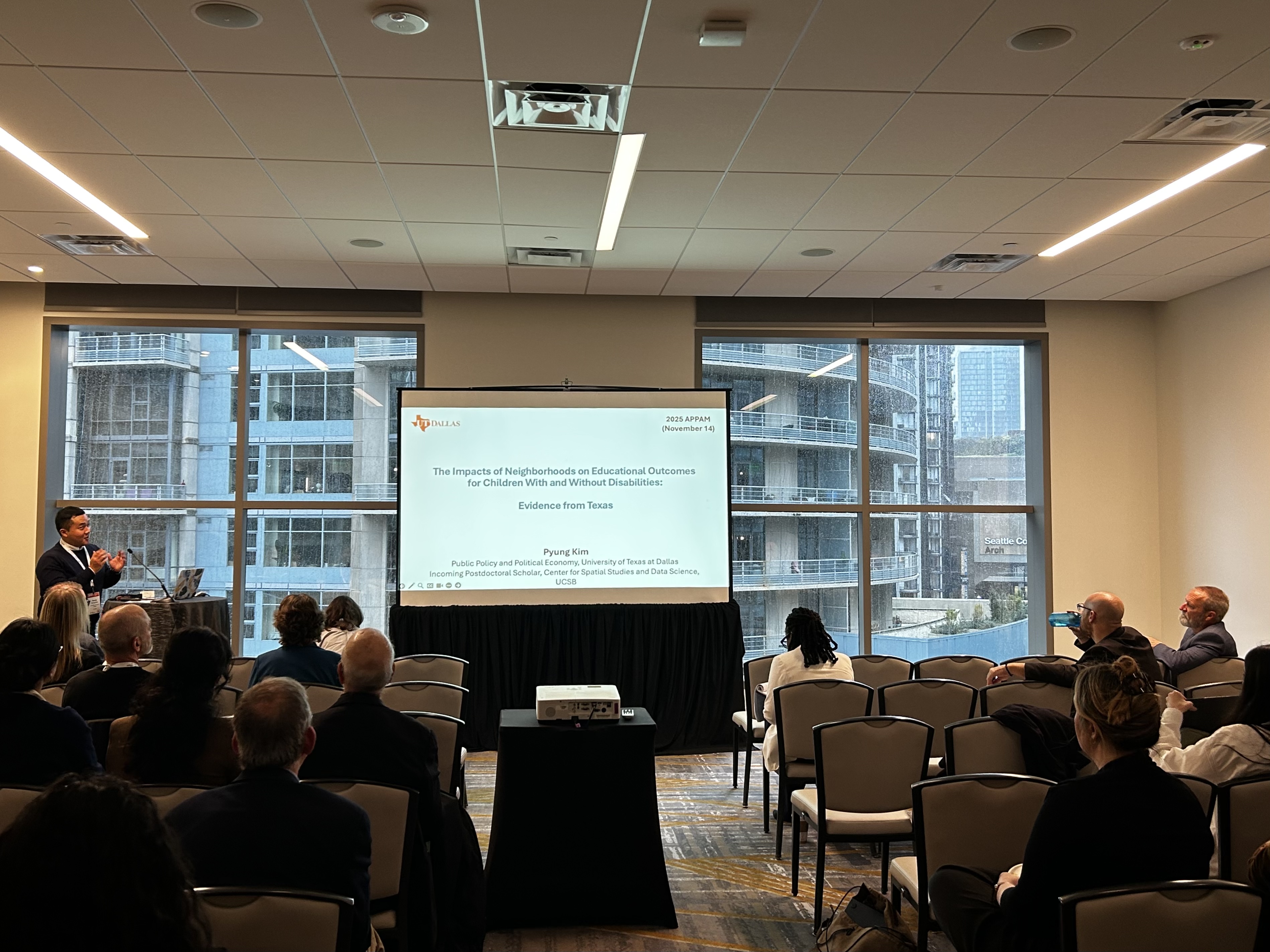Pyung Kim
(Name pronunciation: P-young Kim)

I am a Postdoctoral Scholar in the Department of Geography at the Center for Spatial Studies and Data Science, University of California, Santa Barbara, beginning in January 2026. I am committed to translating place-based social challenges into theoretical frameworks that can be rigorously evaluated using empirical data.
My research lies at the intersection of geography, public policy, and data science. My work has three primary threads:
- Neighborhood Effects: How do neighborhood environments shape individual health and economic well-being across the life course?
- Place-Based Policy Effects: How do public policy impacts vary across places, and which geographic conditions explain this heterogeneity?
- Spatial Causal Inference: How can geography and spatial data science improve causal inference in policy evaluation and epidemiology?
As a PI and GIS specialist, I have contributed to numerous grant-funded projects supported by U.S. federal agencies such as the Social Security Administration (SSA), the National Institute on Disability, Independent Living, and Rehabilitation Research (NIDILRR), and the National Institute of Environmental Research (NIER), and the Korea Centers for Disease Control and Prevention (KCDC).
Biography
Before joining UCSB, Pyung Kim served as a Graduate Researcher with the Spatial Health AI Research Partnership (SHARP) at the University of Texas at Dallas (2024-2025). He also taught machine learning and spatial statistics courses at the Korea Social Science Data Archive (KOSSDA) at Seoul National University (2023-2025). Previously, he worked as a Research Assistant at the Korea Institute of Public Administration (KIPA), a national policy think tank under the National Research Council for Economics, Humanities and Social Sciences (2020).
He earned his Ph.D. in Public Policy and Political Economy and his M.S. in Geospatial Information Science from the University of Texas at Dallas in 2025, where he was admitted with the program’s highest honor, the Brian J. L. Berry Scholarship. He also holds an M.A. in Public Administration from Yonsei University (2020), supported by the Brain Korea 21 PLUS Scholarship, and a B.A. in Public Administration from Ajou University (2018), funded by Korea’s National Excellence Scholarship. During his undergraduate studies, he was an exchange student at Julius-Maximilian University of Wuerzburg in Germany (2016-2017).
Research Interests
- Health, Social, and Environmental Policy
- Health and Economic Geography
- Disability, Aging, and Retirement
- Spatial Data Science, GIS, and Geo AI
Contact Me
pyungkim@ucsb.edu
Google Scholar
Linkedin
